Three deeply felt learning from this program
- I have learned the importance of collaboration within the workplace and community as it relates to working with children and their families. There are several individuals and groups that believe in my passion for working with young children and families. Working with others is a great way to increase my comprehension, skills, and abilities.
- I have learned the importance of celebrating and identifying diversity in the early childhood field. Each one of my colleagues brought different sentiments and culture to these courses, just as each family conveys their culture to the early childhood programs. Creating atmospheres and spaces where families feel content, respected, valued and welcome is essential to their child’s progress, the creation of non-biased education.
- I have learned the vital value of understanding children and families’ exceptional identities, and how the identities must be fostered and supported in the early childhood education programs.
Long term goal…
One long term goal that I have is to own and operate my own educational learning center. I have always dreamed of opening my own center because I feel like I have more to offer than in the role of the educator. In being owner/director, I will be able to work face to face with the parents, children, and my staff. I will be able to run the center how I want it ran so that everyone will be respected, valued, and welcomed upon entering my center. Although going back to school is not in my near future, I will continue to stay current with the changes in the research as it relates to the early childhood program.
Farewell
First I have to say we did it!!!! Congratulations to us all. I would like to say thank you to Dr. E for being an outstanding instructor and providing feedback to all assignments. It has truly been a pleasure having you as an instructor once more. You have helped make this course go by a lot smoother than I anticipated. When I wanted to quit and give up, you did not let that happen. From the bottom of my heart I thank you for all that you have done. I want to say thank you to all of my colleagues. It has been a journey throughout the courses. We have become one big family as we have supported one another in our discussions and blogs and even through emails. I pray that as we part our separate ways that each of you will continue to be successful as you embark on your future endeavors. Farewell and God bless.
My contact information:
Facebook- Dionna Hill
Email-deemonee1016@gmail.com
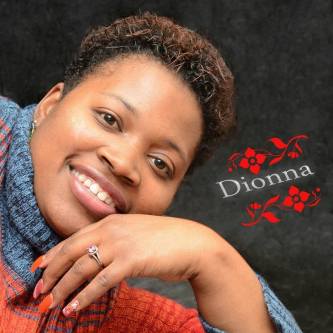
“The better you know yourself, the better you can understand your own responses to the children and families you work with” (Derman-Sparks & Edwards, 2010 p. 21)
Reference
Derman-Sparks, L., & Edwards, J. O. (2010). Anti-bias education for young children and ourselves. Washington, DC: National Association for the Education of Young Children (NAEYC).
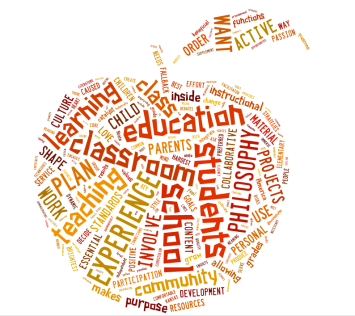



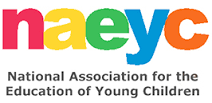


 home setting, group socialization experiences, and providing a link between the family, Early Head Start and the community.
home setting, group socialization experiences, and providing a link between the family, Early Head Start and the community.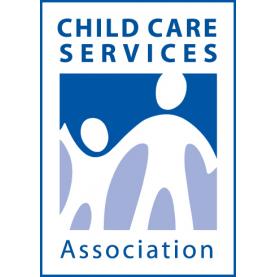
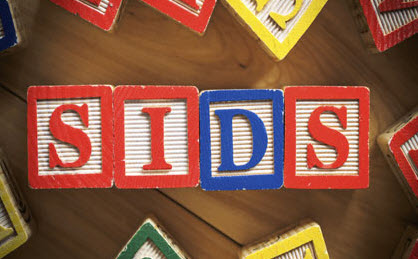
 North Carolina Early Childhood Association (NCECA) was established in 1960. NCECA’s mission is to improve the quality of child care in North Carolina. They are committed to making high quality child care available to all children in our state. Their membership includes parents, teachers, childcare center directors, family child care home providers and other child care professionals and advocates. The organization also advocates for improvement of the working environment for early childhood professionals. There are no jobs available at this particular organization.
North Carolina Early Childhood Association (NCECA) was established in 1960. NCECA’s mission is to improve the quality of child care in North Carolina. They are committed to making high quality child care available to all children in our state. Their membership includes parents, teachers, childcare center directors, family child care home providers and other child care professionals and advocates. The organization also advocates for improvement of the working environment for early childhood professionals. There are no jobs available at this particular organization.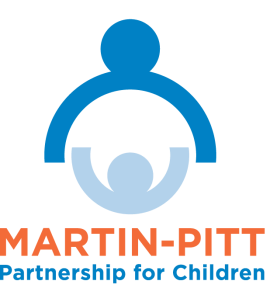 Martin-Pitt Partnership for Children (MPPFC) that was founded in 1998, brings together all the people involved families, teachers, doctors, childcare professionals, caregivers, social workers, and community partners – to ensure children have all they need for healthy growth and development. MPPFC is a nonprofit organization that serves the birth to five population and their families. MPPFC is one of 79 Smart Start partnerships in our state, North Carolina. MPPFC works to support parents, child care facilities, and educators through collaborative programs. The mission of MPPFC is to make meaningful and measurable investments in the quality of life for young children and families in education, health and support services. MPPFC goal is to provide every child in Martin and Pitt Counties between the ages of birth to five the opportunity to experience a quality early childhood education. This organization stands out to me because t
Martin-Pitt Partnership for Children (MPPFC) that was founded in 1998, brings together all the people involved families, teachers, doctors, childcare professionals, caregivers, social workers, and community partners – to ensure children have all they need for healthy growth and development. MPPFC is a nonprofit organization that serves the birth to five population and their families. MPPFC is one of 79 Smart Start partnerships in our state, North Carolina. MPPFC works to support parents, child care facilities, and educators through collaborative programs. The mission of MPPFC is to make meaningful and measurable investments in the quality of life for young children and families in education, health and support services. MPPFC goal is to provide every child in Martin and Pitt Counties between the ages of birth to five the opportunity to experience a quality early childhood education. This organization stands out to me because t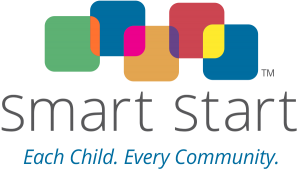 here are professionals of different statuses working together for a common cause. MPPFC is one of 79 Smart Start partnerships in our state, North Carolina. MPPFC works to support parents, child care facilities, and educators through collaborative programs. There are no
here are professionals of different statuses working together for a common cause. MPPFC is one of 79 Smart Start partnerships in our state, North Carolina. MPPFC works to support parents, child care facilities, and educators through collaborative programs. There are no State of New Jersey Department of Children and Families (DCF)– I chose this particular organization due to the fact that I will be moving to New Jersey by the end of October of this year. I was interested in learning to see if they had any program or organizations that resonate with me. I came across the New Jersey DCF and looked into and saw that it would be the kind of environment I would not mid working in because I get to work with the children and their families. The New Jersey DCF is the state’s first comprehensive agency dedicated to ensuring the safety, well-being and success of children, youth, families and communities. DCF’s vision is to ensure a better today and even a greater tomorrow for every individual they serve. Currently, DCF is staffed by approximately 6,600 employees and encompasses:
State of New Jersey Department of Children and Families (DCF)– I chose this particular organization due to the fact that I will be moving to New Jersey by the end of October of this year. I was interested in learning to see if they had any program or organizations that resonate with me. I came across the New Jersey DCF and looked into and saw that it would be the kind of environment I would not mid working in because I get to work with the children and their families. The New Jersey DCF is the state’s first comprehensive agency dedicated to ensuring the safety, well-being and success of children, youth, families and communities. DCF’s vision is to ensure a better today and even a greater tomorrow for every individual they serve. Currently, DCF is staffed by approximately 6,600 employees and encompasses: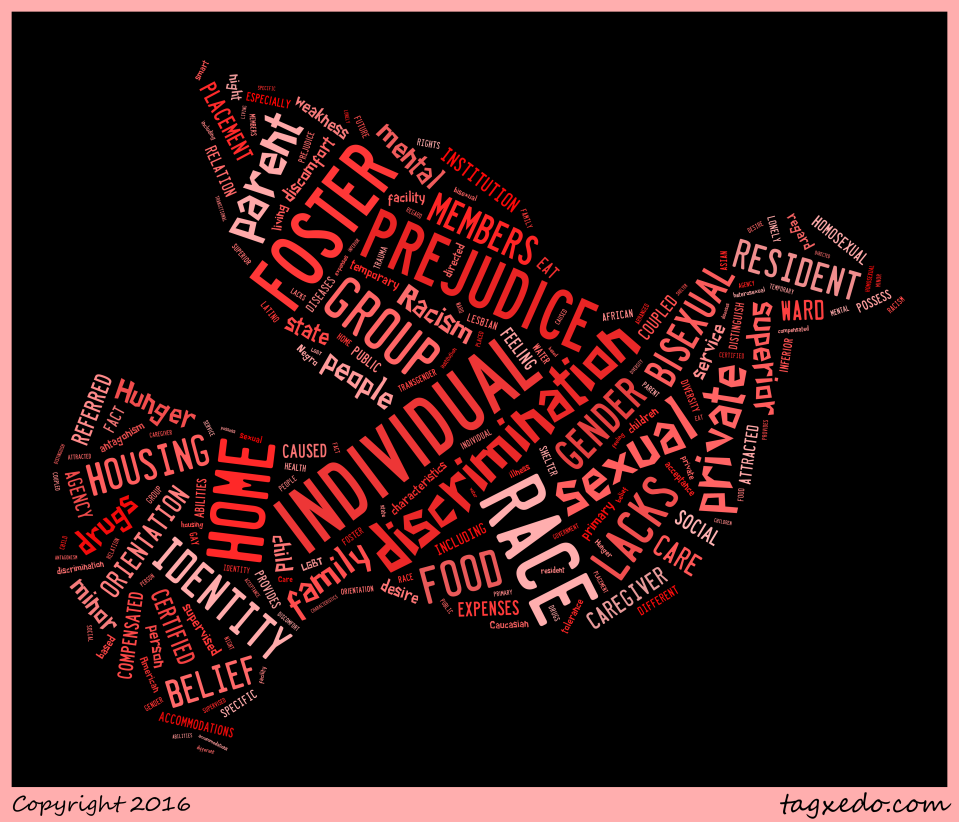
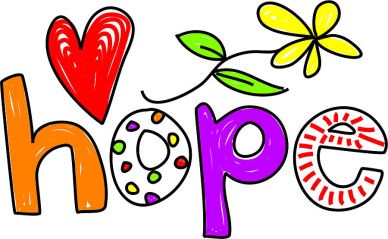 respected and supported. My hope is to also ensure that each family regardless of race, religion, culture, gender, sexual orientation, or economic class is visible and represented throughout the learning environment. I hope that all families feel accepted and can build and maintain a trusting partnership with myself as the educator. Derman-Sparks and Edwards (2010) mentions “As families develop trust that you care about and believe in their child, they come to feel that they, too, “belong” in your early childhood program” (p. 37). In order for children to build the basic trust they need for healthy development, they need to be loved, nurtured, and safe (Derman-Sparks & Edwards, 2010).
respected and supported. My hope is to also ensure that each family regardless of race, religion, culture, gender, sexual orientation, or economic class is visible and represented throughout the learning environment. I hope that all families feel accepted and can build and maintain a trusting partnership with myself as the educator. Derman-Sparks and Edwards (2010) mentions “As families develop trust that you care about and believe in their child, they come to feel that they, too, “belong” in your early childhood program” (p. 37). In order for children to build the basic trust they need for healthy development, they need to be loved, nurtured, and safe (Derman-Sparks & Edwards, 2010).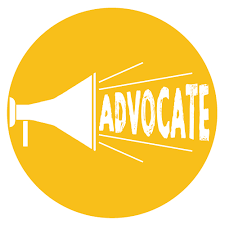 with every family I come in contact with. My hope is to support and advocate for the children and families I will work with on a daily basis. My hope is to empower and strengthen families especially when they feel discriminated against and invisible to the point where they do not feel
with every family I come in contact with. My hope is to support and advocate for the children and families I will work with on a daily basis. My hope is to empower and strengthen families especially when they feel discriminated against and invisible to the point where they do not feel past 8 weeks. It has been a privilege to be a part of a big movement that will help children to be successful and to reach to their fullest potential. Thank you all for your responses to my blog and also to my discussions. I want to that Dr. Bird-Pickens for all the support and encouraging words on my blogs, discussions, and other assignments. I look forward to being in the last course with some of you if not all. Be blessed and may you continue to excel as we embark on our future courses here at Walden University. Once again thank you to all of you for your continued love and support. .
past 8 weeks. It has been a privilege to be a part of a big movement that will help children to be successful and to reach to their fullest potential. Thank you all for your responses to my blog and also to my discussions. I want to that Dr. Bird-Pickens for all the support and encouraging words on my blogs, discussions, and other assignments. I look forward to being in the last course with some of you if not all. Be blessed and may you continue to excel as we embark on our future courses here at Walden University. Once again thank you to all of you for your continued love and support. .
 do is Central and West Africa. I chose this area because I was not familiar with it and I wanted to learn more about this particular region. In reading about this region I have learned that many children here are involved in suicide attacks and have been separated from their families. This region is facing so many deficits and harsh times especially the children because they are experiencing at early ages the sight of death,
do is Central and West Africa. I chose this area because I was not familiar with it and I wanted to learn more about this particular region. In reading about this region I have learned that many children here are involved in suicide attacks and have been separated from their families. This region is facing so many deficits and harsh times especially the children because they are experiencing at early ages the sight of death, attacks in Nigeria, Cameroon, Chad and Niger has risen sharply over the past year, from 4 in2014 to 44 in 2015, according to UNICEF data
attacks in Nigeria, Cameroon, Chad and Niger has risen sharply over the past year, from 4 in2014 to 44 in 2015, according to UNICEF data Cameroon, and Chad” (UNICEF, 2011). The women and girls are being kidnapped, raped and engaged in sexual violence and causing them to become pregnant and the child born of that hateful act will “…also encounter stigma and discrimination in their villages” (UNICEF, 2011). No child asked to be signed up for what these children have experienced at such early ages. They deserve to live as a child and not have to worry about death.
Cameroon, and Chad” (UNICEF, 2011). The women and girls are being kidnapped, raped and engaged in sexual violence and causing them to become pregnant and the child born of that hateful act will “…also encounter stigma and discrimination in their villages” (UNICEF, 2011). No child asked to be signed up for what these children have experienced at such early ages. They deserve to live as a child and not have to worry about death. inside, which then leads to mental illness. UNICEF child protection specialist believes “It can lead to a vicious cycle of violence on the part of those who harbor such feelings, especially children” (UNICEF, 2011). Because children are used as suicide bombers many people fear for their lives. “As ‘suicide’ attacks involving children become commonplace, some communities are starting to see children as threats to their safety…This suspicion towards children can have destructive consequences” (UNICEF, 2011). Even though children have been through o many traumatic events in their lives, there is help to help them cope with what they have been through. UNICEF along with other supporters”… provides safe water and life-saving health services; helps to restore access to education by creating temporary learning spaces; and delivers therapeutic treatment to malnourished children. UNICEF also provides psychosocial support to children to help them cope with emotional distress” (UNICEF, 2011).
inside, which then leads to mental illness. UNICEF child protection specialist believes “It can lead to a vicious cycle of violence on the part of those who harbor such feelings, especially children” (UNICEF, 2011). Because children are used as suicide bombers many people fear for their lives. “As ‘suicide’ attacks involving children become commonplace, some communities are starting to see children as threats to their safety…This suspicion towards children can have destructive consequences” (UNICEF, 2011). Even though children have been through o many traumatic events in their lives, there is help to help them cope with what they have been through. UNICEF along with other supporters”… provides safe water and life-saving health services; helps to restore access to education by creating temporary learning spaces; and delivers therapeutic treatment to malnourished children. UNICEF also provides psychosocial support to children to help them cope with emotional distress” (UNICEF, 2011). n suicide bombers, rape, displacement, abduction, separation, maimed, and being killed. As a human being after reading and learning about what is going over there makes me sad and my heart ache because no one should have to experience this type of violence at such a young age. As an early childhood educator, it is important for to learn about the challenges young children face on a daily basis and how they can bring with them positive and negative experiences. It is up to us as early childhood educators to create a safe,
n suicide bombers, rape, displacement, abduction, separation, maimed, and being killed. As a human being after reading and learning about what is going over there makes me sad and my heart ache because no one should have to experience this type of violence at such a young age. As an early childhood educator, it is important for to learn about the challenges young children face on a daily basis and how they can bring with them positive and negative experiences. It is up to us as early childhood educators to create a safe,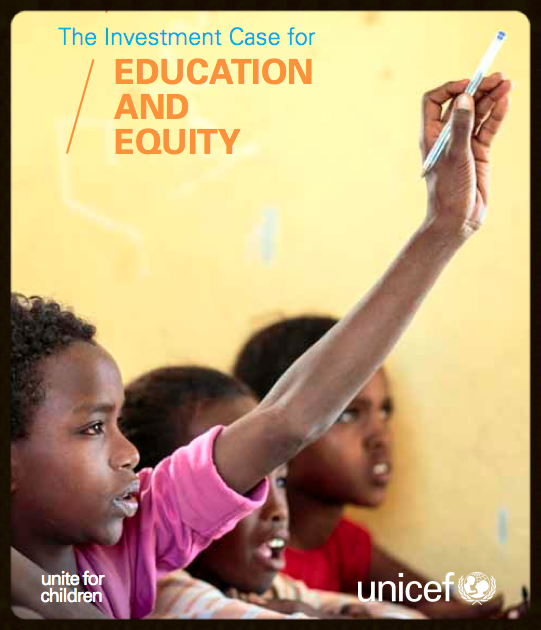 o learn, grow, and play. It is our job and responsibility to ensure that we help children appreciate their family and culture no matter where they come from (Derman-Sparks & Edwards, 2010). Family is all that we have and sometimes we go through a lot of traumatic events but in the end family is there for one another. Not only do we support the child as an educator but we also support the family. Families that encounter or experience traumatic events
o learn, grow, and play. It is our job and responsibility to ensure that we help children appreciate their family and culture no matter where they come from (Derman-Sparks & Edwards, 2010). Family is all that we have and sometimes we go through a lot of traumatic events but in the end family is there for one another. Not only do we support the child as an educator but we also support the family. Families that encounter or experience traumatic events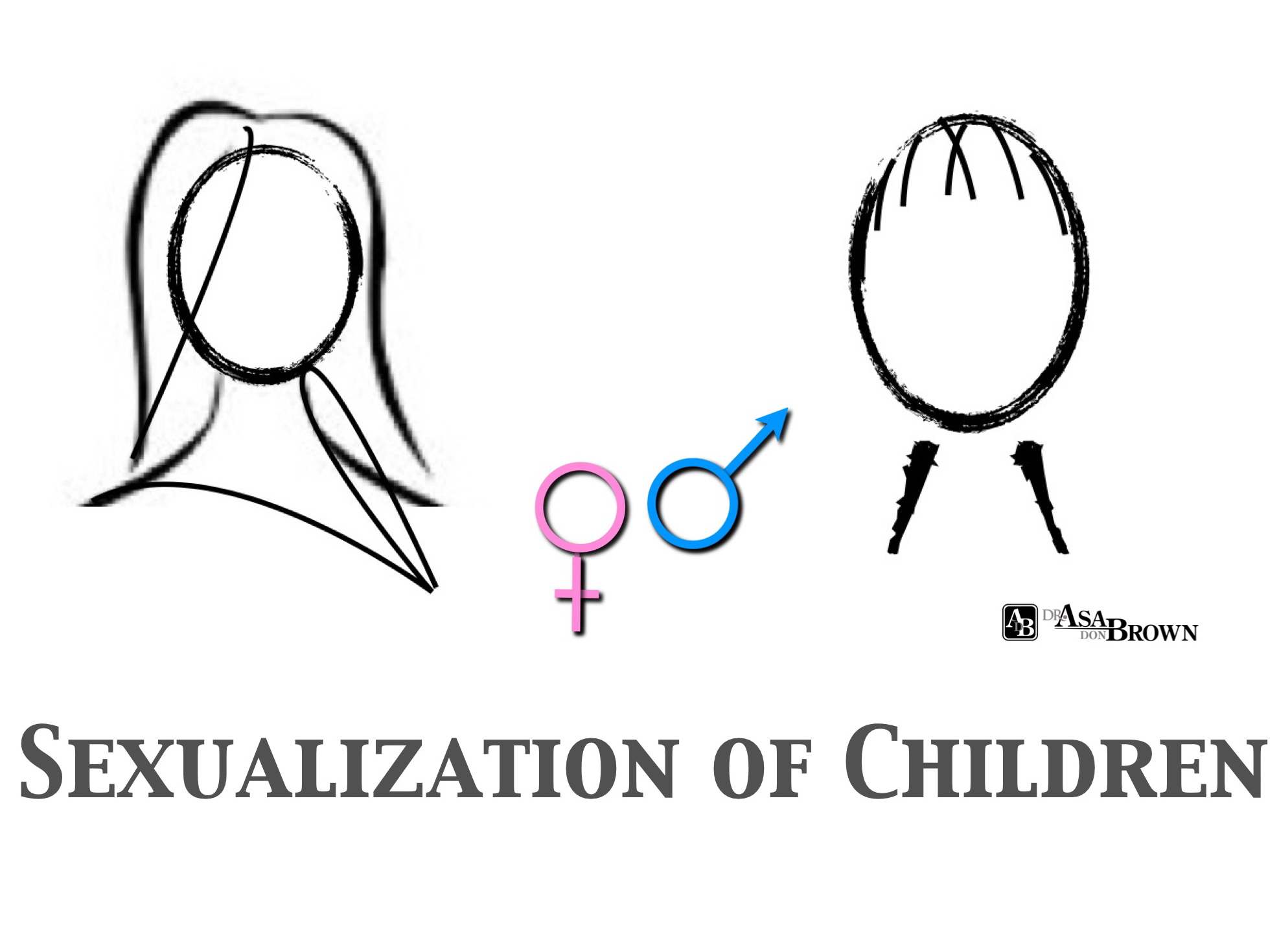
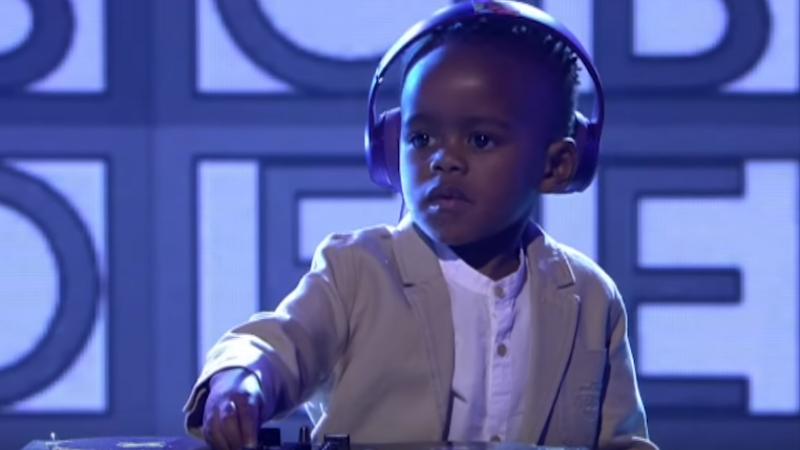 s generation is growing up a lot faster than they did when I was a child. Children as young as 2 and 3 are listening, rapping and singing songs about sex, drugs, violence,
s generation is growing up a lot faster than they did when I was a child. Children as young as 2 and 3 are listening, rapping and singing songs about sex, drugs, violence, woman in particular was dressed provocatively and he saw the picture. Upon him getting on his after-school van, a teacher overheard him say “she is hot as f***” and he was written up for that. I could not figure out where he learned how to say that because I do not talk like that and I screen what he watches on television and his tablet. I fail to realize that he is surrounded by other children and adults when he is in school and at other family members’ houses. How quickly was I reminded that children are like sponges, soaking in all they observe in their surroundings. As a professional, I have little girls in my classroom that dress inappropriately fo
woman in particular was dressed provocatively and he saw the picture. Upon him getting on his after-school van, a teacher overheard him say “she is hot as f***” and he was written up for that. I could not figure out where he learned how to say that because I do not talk like that and I screen what he watches on television and his tablet. I fail to realize that he is surrounded by other children and adults when he is in school and at other family members’ houses. How quickly was I reminded that children are like sponges, soaking in all they observe in their surroundings. As a professional, I have little girls in my classroom that dress inappropriately fo r their ages. They wear short shorts, tight pants or leggings, spaghetti string shirts or belly shirts. I do not like when they come in dressed that way because I would not dress my daughter that way because there are a lot of pedophiles around and young boys should not be exposed to that at their ages either. But what can one expect when the parents dress that way themselves? Some of my boys come in with “wife beaters” on and with their pants sagging and they are 4 and 5 years of age. Just the other day, one of my little 7-year-old girls told me that my son was her boyfriend and that when they get older they are going to get married and be husband and wife. I kindly told her that she was too young to be talking about a boyfriend and getting married. I told her that my son does not have a girlfriend and that his education comes first.
r their ages. They wear short shorts, tight pants or leggings, spaghetti string shirts or belly shirts. I do not like when they come in dressed that way because I would not dress my daughter that way because there are a lot of pedophiles around and young boys should not be exposed to that at their ages either. But what can one expect when the parents dress that way themselves? Some of my boys come in with “wife beaters” on and with their pants sagging and they are 4 and 5 years of age. Just the other day, one of my little 7-year-old girls told me that my son was her boyfriend and that when they get older they are going to get married and be husband and wife. I kindly told her that she was too young to be talking about a boyfriend and getting married. I told her that my son does not have a girlfriend and that his education comes first. Kilbourne (2009) claim “violence and sexualization that saturate marketing and media… limit opportunities for children to develop as whole people and undermine the very foundation necessary for children to actualize their full potential and to value and respect themselves and others” (p. 6). When children are exposed to these messages, the foundation for understanding and being able to form healthy relationships when they are older will cause confusion. Girls will grow up thinking that they will have to dress inappropriately like the women in the music videos or television show. Girls perceive themselves as objects, and center their self-worth on how striking they are, using the media to compare themselves to the awareness of the so called “ideal” beauty. The boys will be impacted as well from the messages in regards in viewing girls or women. Boys grow up confused when they hear songs that call women derogatory names, and see women dressed in little to no clothing. Sooner or later boys learn that girls are objects, and will see them through the same media scope. “Both girls and boys, but especially girls, are pushed into precocious sexuality in appearance and behavior long before they understand the deeper meaning of relationships or the sexual behavior
Kilbourne (2009) claim “violence and sexualization that saturate marketing and media… limit opportunities for children to develop as whole people and undermine the very foundation necessary for children to actualize their full potential and to value and respect themselves and others” (p. 6). When children are exposed to these messages, the foundation for understanding and being able to form healthy relationships when they are older will cause confusion. Girls will grow up thinking that they will have to dress inappropriately like the women in the music videos or television show. Girls perceive themselves as objects, and center their self-worth on how striking they are, using the media to compare themselves to the awareness of the so called “ideal” beauty. The boys will be impacted as well from the messages in regards in viewing girls or women. Boys grow up confused when they hear songs that call women derogatory names, and see women dressed in little to no clothing. Sooner or later boys learn that girls are objects, and will see them through the same media scope. “Both girls and boys, but especially girls, are pushed into precocious sexuality in appearance and behavior long before they understand the deeper meaning of relationships or the sexual behavior  they’re imitating” (Levin & Kilbourne, 2009, p. 3). One way to minimize the negative impact on children is that an early childhood professional could work with families to create home environments that limit children’s exposure to inappropriate media/experiences. The best way to fight this problem is to support the parents without putting the blame on them. In creating a close relationship with families, the teacher will be aware when these issues arise. It is our responsibility to help parents work through the problems without judging and blaming (Levin & Kilbourne, 2009).
they’re imitating” (Levin & Kilbourne, 2009, p. 3). One way to minimize the negative impact on children is that an early childhood professional could work with families to create home environments that limit children’s exposure to inappropriate media/experiences. The best way to fight this problem is to support the parents without putting the blame on them. In creating a close relationship with families, the teacher will be aware when these issues arise. It is our responsibility to help parents work through the problems without judging and blaming (Levin & Kilbourne, 2009). bout sexualization on this week it has really raised my awareness of the sexualization of early childhood. I had no realization as to how young children are so influenced by sexualization. I thought that it would have a more negative imp
bout sexualization on this week it has really raised my awareness of the sexualization of early childhood. I had no realization as to how young children are so influenced by sexualization. I thought that it would have a more negative imp In our professional lives as well as our personal lives, we at some point in time have experienced some type of “ism” whether it was personal or happened to a family member or loved one. “An ism is about the institutional advantages and disadvantages people experience due to their membership (or perceived membership) in certain social identity groups” (Derman-Sparks, & Edwards, 2010, p. 24). Consequences that I might expect for the children and families I work with while encountering racism is the lack of trust and shattered partnerships and relationships with the children and their families. Due to the fact that some families may be private they might not want to share any pertinent information with me about their family. Some of the families may feel like they are welcomed in regards to their child’s education. Because of the lack of self-assurance and
In our professional lives as well as our personal lives, we at some point in time have experienced some type of “ism” whether it was personal or happened to a family member or loved one. “An ism is about the institutional advantages and disadvantages people experience due to their membership (or perceived membership) in certain social identity groups” (Derman-Sparks, & Edwards, 2010, p. 24). Consequences that I might expect for the children and families I work with while encountering racism is the lack of trust and shattered partnerships and relationships with the children and their families. Due to the fact that some families may be private they might not want to share any pertinent information with me about their family. Some of the families may feel like they are welcomed in regards to their child’s education. Because of the lack of self-assurance and  feelings of subordination within myself, I feel that the children would suffer because of my lack of showing affection, warmth, and nurture towards them. A person that may experience racism might have feelings of internalized oppression. Internalized oppression can be defined as the “belief in the entitlement and superiority of oneself ad one’s social identity group(s), based on societal myths and misinformation” (Derman-Sparks, & Edwards, 2010, p. xii).
feelings of subordination within myself, I feel that the children would suffer because of my lack of showing affection, warmth, and nurture towards them. A person that may experience racism might have feelings of internalized oppression. Internalized oppression can be defined as the “belief in the entitlement and superiority of oneself ad one’s social identity group(s), based on societal myths and misinformation” (Derman-Sparks, & Edwards, 2010, p. xii). ct and talk. Because children are such great observers they pay close attention to the small but significant clues as in how teachers are feeling (Derman-Sparks & Edwards, 2010). So we have to be careful what we say or do around children. “Moreover, children are quick to notice double messages-what adults do teaches as least as much as what they say” (Derman-Sparks, & Edwards, 2010, p. 32). Children also watch how adults interact with one another within their program.
ct and talk. Because children are such great observers they pay close attention to the small but significant clues as in how teachers are feeling (Derman-Sparks & Edwards, 2010). So we have to be careful what we say or do around children. “Moreover, children are quick to notice double messages-what adults do teaches as least as much as what they say” (Derman-Sparks, & Edwards, 2010, p. 32). Children also watch how adults interact with one another within their program.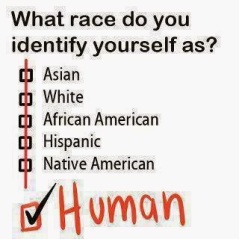 families feel helpless when they are not able to do anything about certain things because they do not have the resources and do not know how to move further when they are rejected. This can be damaging individual’s self-worth and self-image, and harmful to the group because it continues discrimination and oppression. In growing up I experienced racism and class-ism when I was in elementary school. No one
families feel helpless when they are not able to do anything about certain things because they do not have the resources and do not know how to move further when they are rejected. This can be damaging individual’s self-worth and self-image, and harmful to the group because it continues discrimination and oppression. In growing up I experienced racism and class-ism when I was in elementary school. No one  wanted to play with me because of the way I was dressed. I did not have the best of clothes or shoes. I come from a family that was at the poverty level and we survived off of bologna and bread. It was a struggle for my mother and seven children and a grandchild. We were put into foster care when I was six years of age and remained in care until I was twenty. I felt all alone and left out. I was told by my first Caucasian social worker that I would never be anything in life and that I would be nothing but a number in the system because I was black and in foster care. I was really hurt by that statement. Although I was young, I still knew what it meant and I could not believe that she said that to me. I had it hard growing up but I did not let that stop me from graduating from high school, obtaining my Bachelor’s Degree and now working on my Master’s. I took the negative words that she told me and used them to motivate me to become somebody in life and to make her out to be a lie. I am more than just a number. I am what God created me to be.
wanted to play with me because of the way I was dressed. I did not have the best of clothes or shoes. I come from a family that was at the poverty level and we survived off of bologna and bread. It was a struggle for my mother and seven children and a grandchild. We were put into foster care when I was six years of age and remained in care until I was twenty. I felt all alone and left out. I was told by my first Caucasian social worker that I would never be anything in life and that I would be nothing but a number in the system because I was black and in foster care. I was really hurt by that statement. Although I was young, I still knew what it meant and I could not believe that she said that to me. I had it hard growing up but I did not let that stop me from graduating from high school, obtaining my Bachelor’s Degree and now working on my Master’s. I took the negative words that she told me and used them to motivate me to become somebody in life and to make her out to be a lie. I am more than just a number. I am what God created me to be.
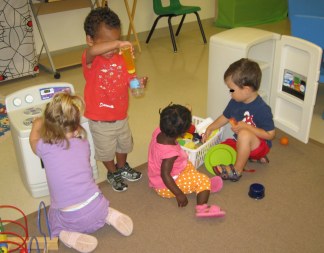 others were on the floor playing with blocks and floor puzzles. The teacher was cleaning off the tables because they had just finished their breakfast. The teacher had her back against the class as she wiped off the tables and swept the floor. Every now and then, the teacher would tell a child to sit down or be quiet but never stopped what she was doing or make eye contact with the child she was talking to. When she finally finished cleaning she told the children to clean up because they were getting ready to have their circle time. When they were done cleaning the teacher gathered all of her materials for circle time and sat on the floor. The children sat on the floor in a circle. At this point the teacher was at the children’s level. In the media segment Kolbeck states how vital it is for the teacher to bend down on the child’s level so that he/she is able to talk and listen to the child (Laureate Education, Inc., 2011). During circle time, they sang a song that allowed each child to stand up and dance when their name was called. Some of the children stood
others were on the floor playing with blocks and floor puzzles. The teacher was cleaning off the tables because they had just finished their breakfast. The teacher had her back against the class as she wiped off the tables and swept the floor. Every now and then, the teacher would tell a child to sit down or be quiet but never stopped what she was doing or make eye contact with the child she was talking to. When she finally finished cleaning she told the children to clean up because they were getting ready to have their circle time. When they were done cleaning the teacher gathered all of her materials for circle time and sat on the floor. The children sat on the floor in a circle. At this point the teacher was at the children’s level. In the media segment Kolbeck states how vital it is for the teacher to bend down on the child’s level so that he/she is able to talk and listen to the child (Laureate Education, Inc., 2011). During circle time, they sang a song that allowed each child to stand up and dance when their name was called. Some of the children stood  up when their name was called and those that did not stand up to dance the teacher skipped their name. When the song was finished, the teacher asked each child their name, birthday, and age. For the most part most part, majority of the children did not know their birthday and last name but they knew their first name and age. Some had to have assistance from the teacher. After circle time they broke up into their center time. I did not observe the teacher communicated with any one child at any point.
up when their name was called and those that did not stand up to dance the teacher skipped their name. When the song was finished, the teacher asked each child their name, birthday, and age. For the most part most part, majority of the children did not know their birthday and last name but they knew their first name and age. Some had to have assistance from the teacher. After circle time they broke up into their center time. I did not observe the teacher communicated with any one child at any point.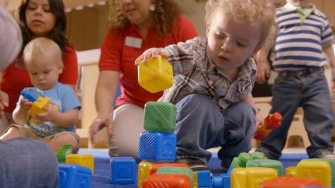 ause he may hit somebody with one.” The teacher was not paying attention to the children play
ause he may hit somebody with one.” The teacher was not paying attention to the children play the teacher ask one little girl what she was drawing in the art center. The little girl responded with “my mommy and daddy.” The teacher then asked her to tell her more about her picture and she did. Then there was the time when she was talking to the little boys in the block area and they were talking to her about spaceships and swords. Stephenson (2009) states that “many children were eager to spend time with an adult who was keen to listen to them. The challenge was to search for ways of talking with them that they would find engaging and that would allow them to share their ideas” (p. 90). The children did not mind speaking with the teacher and she found a way for them to further express themselves and go into detail with open ended questions. As a group there was a lot of verbal talking even if the children did not say words correctly but as individuals every child seemed to be on a different level in their speech/language skills. During circle time I feel like the teacher could have interacted more with the children to ge
the teacher ask one little girl what she was drawing in the art center. The little girl responded with “my mommy and daddy.” The teacher then asked her to tell her more about her picture and she did. Then there was the time when she was talking to the little boys in the block area and they were talking to her about spaceships and swords. Stephenson (2009) states that “many children were eager to spend time with an adult who was keen to listen to them. The challenge was to search for ways of talking with them that they would find engaging and that would allow them to share their ideas” (p. 90). The children did not mind speaking with the teacher and she found a way for them to further express themselves and go into detail with open ended questions. As a group there was a lot of verbal talking even if the children did not say words correctly but as individuals every child seemed to be on a different level in their speech/language skills. During circle time I feel like the teacher could have interacted more with the children to ge t them to talk and share ideas like reading a story and ask them questions that would encourage them to give a detail answer besides yes or no. Overall, I feel like the teachers communicated to the children with respect. The teachers did not use a lot of short phrases and simple
t them to talk and share ideas like reading a story and ask them questions that would encourage them to give a detail answer besides yes or no. Overall, I feel like the teachers communicated to the children with respect. The teachers did not use a lot of short phrases and simple When working with children especially young children, I try to find creative ways that the children can communicate and use their words. I talk to them and get them to tell me a little about themselves indirectly such as their favorite toy, activity, color, sport, food and then ask questions and make statements. Whenever I speak with my children, I get down to their level and to talk as well as listen.
When working with children especially young children, I try to find creative ways that the children can communicate and use their words. I talk to them and get them to tell me a little about themselves indirectly such as their favorite toy, activity, color, sport, food and then ask questions and make statements. Whenever I speak with my children, I get down to their level and to talk as well as listen. create a space where the adult and the child is able to hear and listen to one another (Stephenson, 2009). One way I feel that I can improve is the strategy that Stephenson (2009) mention which is stepping back and how I can actually learn how much a child is trying to tell me if I only just listen and hear them.
create a space where the adult and the child is able to hear and listen to one another (Stephenson, 2009). One way I feel that I can improve is the strategy that Stephenson (2009) mention which is stepping back and how I can actually learn how much a child is trying to tell me if I only just listen and hear them.